#jacky bast
Photo
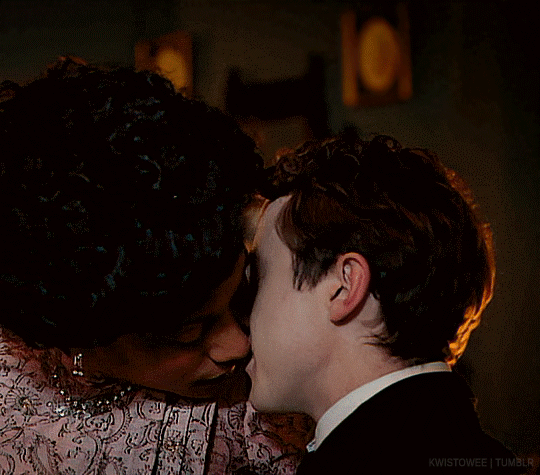

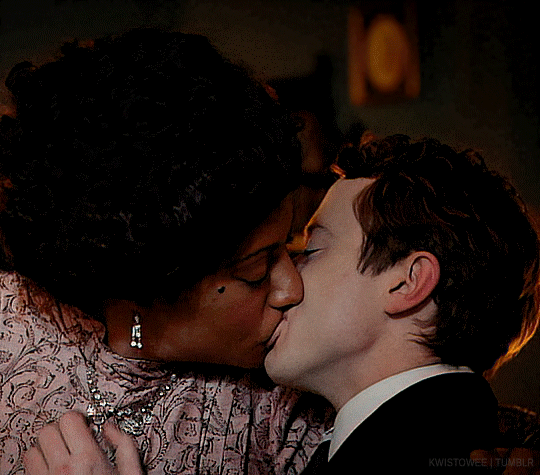
JOSEPH QUINN as LEONARD BAST | HOWARDS END (2017)
#josephquinnedit#joseph quinn#howards end#leonard bast#periodedit#userallisyn#usermaguire#user-lina#userleah#userluke#tvedit#cinemapix#usersource#tvseriessource#dailytvsource#rosalind eleazar#jacky bast#my*gifs#good grief sir#put your lips on my smolder#why is his jawline so attractive?#he is so gentle#he's such a tender character and his story is a tragedy#that flushed ear means joe was blushing#smooch him#smooch him good#chewieblog#userbbelcher
2K notes
·
View notes
Text
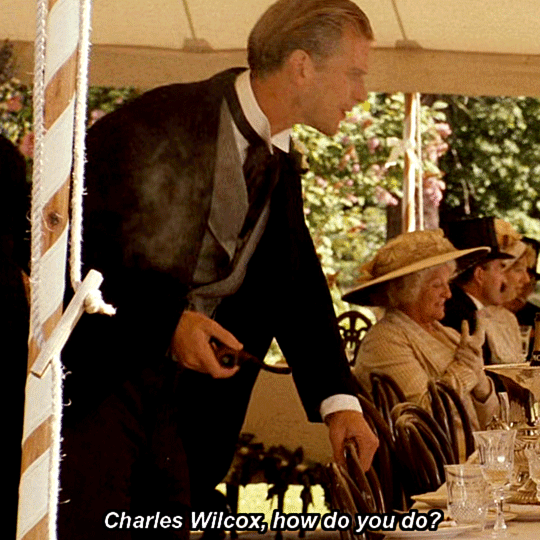
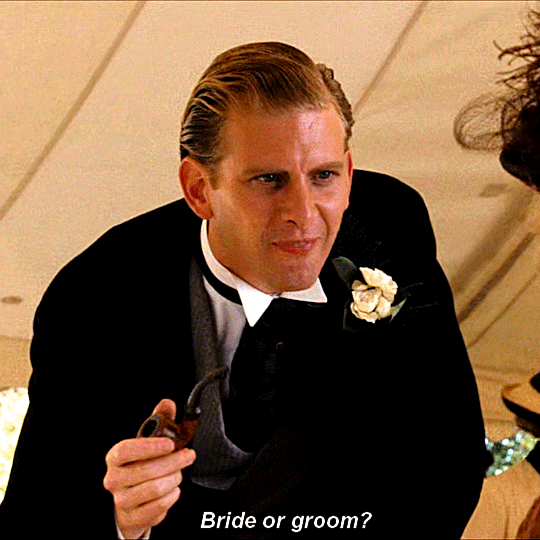
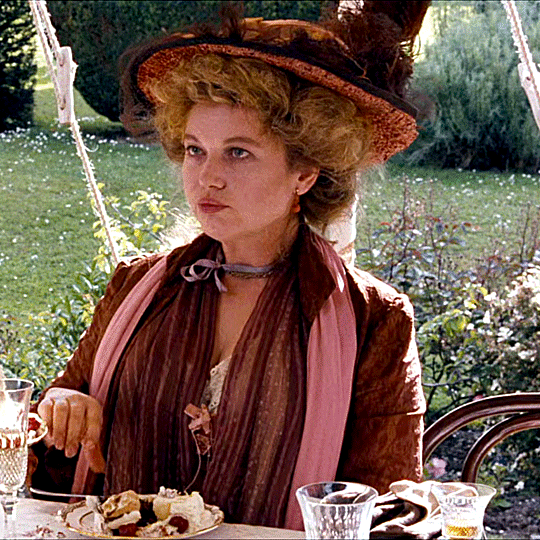

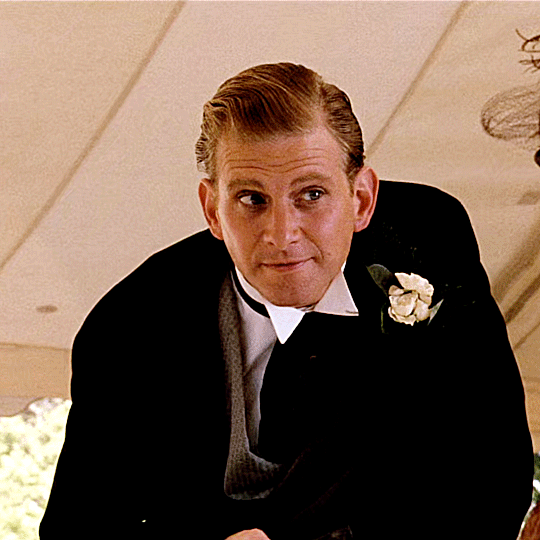
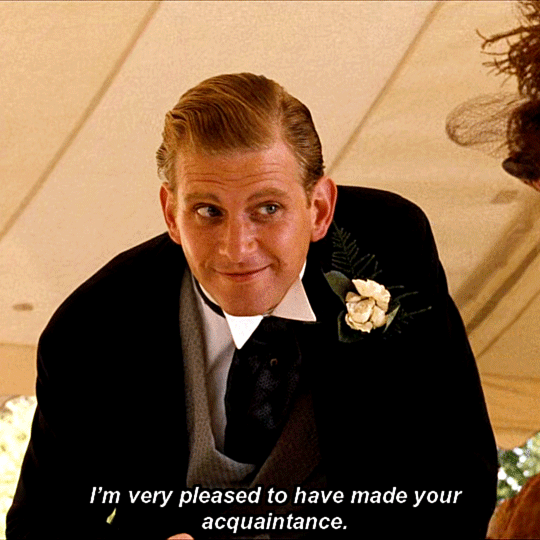
James Wilby as Charles Wilcox and Nicola Duffett as Jacky Bast in Howards End (1992) dir. James Ivory.
#James Wilby#Howards End#Charles Wilcox#LOL this scene#Nicola Duffett#Jacky Bast#Merchant Ivory#James Ivory#Period Films#The fifth gif is my favorite
49 notes
·
View notes
Text
Howard's End au where Helen DOESN'T steal Leonard's umbrella and he and Jacky just live their fucking lives in fucking peace
26 notes
·
View notes
Text
I took a break from Stranger Things to watch Howard’s End and now I’m sad again 😭
#Leonard was such a sad character and I loved him#he was so proud and even though he was unfaithful to Jacky he didn’t deserve that ending#howard’s end#leonard bast
9 notes
·
View notes
Text
Leonard Bast is a bit of a fuck boy.
#Howard's End#leonard bast#saying he's gonna marry Jacky once he turns 21#guilt tripping her for wanting to be married#'I have a ring'#sure you did Lenny Boy#txt
0 notes
Photo
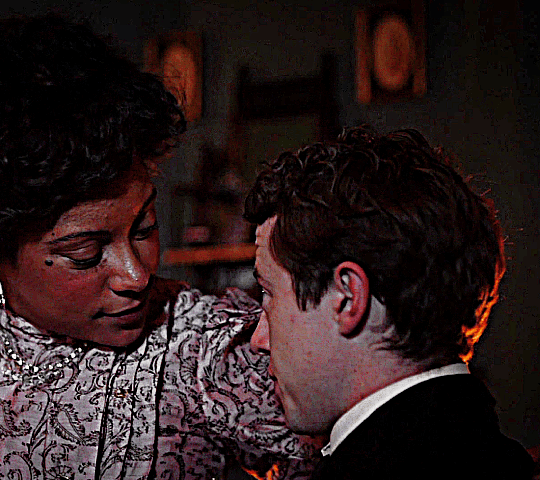
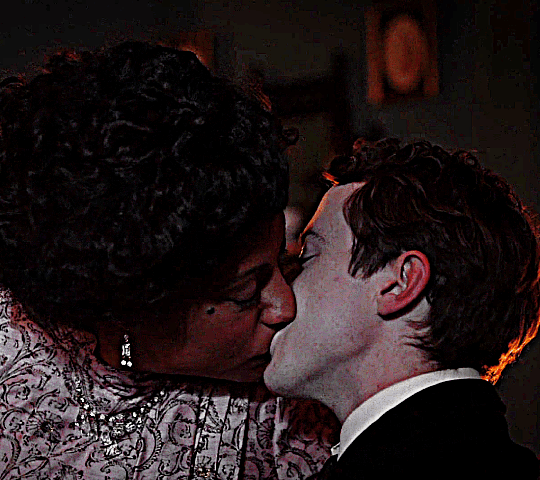

JACKY & LEONARD BAST
HOWARDS END (2017) | 1.01
#howardsendedit#josephquinnedit#joequinnedit#rosalindeleazaredit#releazaredit#tvedit#perioddramaedit#periodedit#perioddramasonly#perioddramacentral#onscreenkisses#userangelic#userallisyn#josephquinncentral#ours#by kai#howards end
2K notes
·
View notes
Text
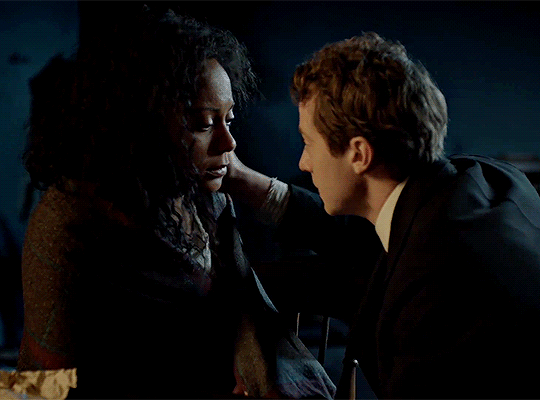
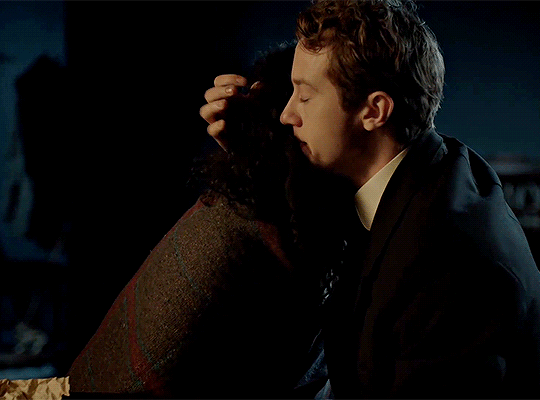
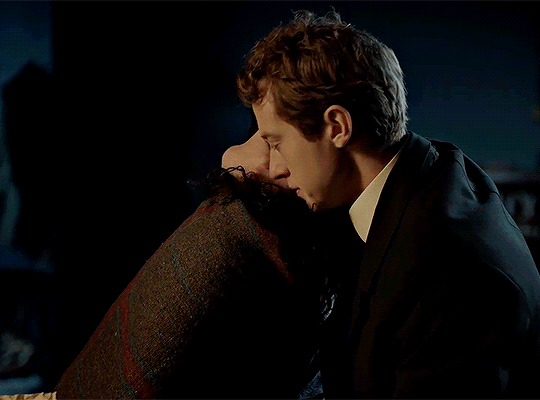
JOSEPH QUINN & ROSALIND ELEAZAR as LEONARD & JACKY BAST
— Howard's End (2017)
#jqedit#josephquinnedit#jquinnedit#joseph quinn#joe quinn#userbanana#userridge#userbaby#*#oh what i would give for this jesus christ#perioddramaedit#tvandfilm#kwistowee
401 notes
·
View notes
Text
Through the World's Far Ends

Pairing: Leonard Bast x Helen Schlegel (Howards End)
Summary: Several years after his ill-fated affair with Helen, Leonard enlists to fight in World War I, hoping it would put an end to his miserable life. However, when he runs into Helen again in the trenches of Passchendaele, Leonard discovers that life may still be worth living after all.
Warnings: angst, mentions of war, violence, and injuries, implied infidelity, suicide ideations
Word count: 7.2k

If I should die, think only this of me:
That there's some corner of a foreign field
That is for ever England. There shall be
In that rich earth a richer dust concealed;
A dust whom England bore, shaped, made aware,
Gave, once, her flowers to love, her ways to roam,
A body of England's, breathing English air,
Washed by the rivers, blest by suns of home.
Those lines echoed in Leonard's ears as he looked over the mud-churned fields of Passchendaele that rainy October day of 1917. Had he read them ten years ago, back when he was still a boy of barely twenty-one with a head full of dreams and a heart full of poetry, he would have marveled at their beautiful ideal, their quiet exultation. Now, he couldn't help but snicker at them for their hopeless sentimentality. If there was anything of England in these foreign fields at all, it probably wouldn't be the England that pretty, posh Rupert Brooke was thinking about. No, it would be the England that Leonard himself was familiar with, the England of damp basement dwellings, of grimy streets, of cold and hunger, and long, tedious nights.
And if he should die, there would be no one to think of him. Not his brother and his two sisters, who had long ago given up on him. Certainly not Jacky, who would never have let him enlist had she still been alive. Poor Jacky. She had been rather excited when the war first broke out. To be honest, so had he. There had been a fevered exhilaration in the air, a sense of purpose in everything and everyone, hectic but thrilling at the same time, which had distracted the two of them, for a moment, from the miserable humdrum of their existence.
Still, for all that excitement, Jacky wouldn't hear of him enlisting, even though it would've at least solved their immediate financial problem—the Army pay wasn't much, but it would be something for her to live on. But she had burst into tears whenever he mentioned it. "No, Len!" she'd kept saying, clinging to him as if afraid Lord Kitchener would come to personally snatch him away. "If something happened to you, how would I live?"
Leonard had been tempted to say that if he should be killed, she could count on a war widow's pension, but Jacky had become so hysterical that he'd only given her a clumsy hug and said, "All right, Jacky, I won't go," while trying to hide the bitterness in his voice.
When she succumbed to the consumption that had been slowly eating away at her, a little over a year later, Leonard had sincerely mourned her. She had been his constant companion, for better or worse, for nearly ten years, and when she was gone, she left a void, if not in his heart then at least in his life. While she was alive, he had to find ways to provide for her, to take care of her. Without her, he was without a purpose.
After Jacky died, he'd thought that he would simply flicker out and die too. But he found that it was not so simple. Living had become a habit, and like any habit, it was difficult to shake off. And so he had enlisted, only waiting a decent period after Jacky's funeral so it wouldn't seem he was defying her memories. He didn't much care about the war. He only thought that if he couldn't give up his life on his own, he would let others snuff it out. He completed his training and was sent to Belgium just before conscription was introduced, in January 1916.
But even in the war, death eluded him. His health, which had suffered from malnourishment and the smog and grimes of London, actually improved thanks to Army food and regular, if strenuous, exercises. He didn't mind the cold and the wet and the mud of the trenches. And though he had seen men die in front of him, men blown to bits by shells, men cut to ribbons by barbed wires, men blistered and blinded and cooked inside out by mustard gas, and men who drowned in the mud because their friends were forbidden to pull them out, though death was all around him, he remained more or less untouched.
To be fair, he didn't exactly go looking for death. He thought that before he died, he should make himself useful and do what he could to help others, so he did. He followed orders without asking questions, bent his head under the explosions and the gas and the horrible weather and did as he was told. He tried not to shoot when he could help it, and when he did shoot, tried not to aim at anyone in particular. He didn't want that on his conscience as well. He preferred the menial work, never shying from digging and repairing the trenches, acting as a stretcher bearer, and carrying supplies to the front.
What he really wanted was to stop thinking. Once, a long time ago, during the darkest time of his life, and also the best time of his life, he'd wished for something to do, to stop him from thinking. Now he believed that if he toiled hard enough, made himself tired enough, he would be able to stop thinking. It didn't quite work yet. Even on days when he'd only had an hour or two of sleep, the thoughts kept coming, slowly but inexorably—about death, about Jacky, about things he'd done and hadn't done, about things he had buried deep in his mind—all rattling inside his skull like lunatics rattling the bars of their cages. The one thing he didn't think about was the future, for there was no future. The war may never end, and for some people, it would never end. Leonard had seen enough wounded men and shell-shocked men and men with scars deep within them, where nobody could see except for those who knew where to look, and he understood that those men would never come back from the war, regardless of what happened to them. Sometimes he wondered if he would be one of them.
Such thoughts were presently crowding his head as he turned over in the dugout, trying to find a comfortable position. There was a lull in the racket of gunfire and shellfire and rain, and he wanted to get some rest—not sleep, he had forgotten what it was like to really sleep for months now—before nightfall. A new shipment of supplies had just been brought in that day on mules and wagons, and Leonard's infantry unit would be assigned to haul these to the front after dusk fell.
The other men in the dugout were squabbling. Leonard didn't mind the bickering. In fact, he welcomed their voices to drown out the thoughts in his head. It appeared Percy Armitage had received some gramophone records in the post that had come with the supplies, but due to some accident or carelessness, the sleeves had been misplaced, and now they were arguing which was which and which to play first. The men were often sent little gifts like that from home, and these were freely shared amongst them all—it was how Leonard became acquainted with the works of Rupert Brooke and other war poets. Though books these days no longer held the allure and enchantment they once had for him, they were something to relieve the boredom in the trenches. All his life, Leonard had wished he could discuss books and music and culture with easiness, an easiness that did not come easily for men of his class. He thought, with a grim sense of smugness, that he could do so now, provided that the books were about the horrors of war.
"Lads, lads," Percy, a veteran of the Boer War and therefore older than most of them, was saying, like a stern but benevolent father to his children. "You shall all get a turn. But these are my records, and I'm going to choose first."
There was a scratching sound of the needle being lowered onto the record. The first soft notes floated out, and as if by magic, all the men fell silent, enraptured by the unimaginably normal, everyday sound of music.
But Leonard was mistaken—the music wasn't soft, not at all. For a moment, it seemed the shellfire and the thunder were coming in the middle of the day instead of at night as usual, as the first notes did not float but boomed from the gramophone, followed by bursts of what sounded like rapid gunfire that chased each other around the cramped dugout. While the music built and built, Leonard could almost hear the chill wind that blew across the battlefield, feel the drumming of the rain on his skin, and see, under his closed eyelids, the men jumping up from the trenches during a raid or slinking across No Man's Land for a reconnaissance in a moonless night. Herr Beethoven had never been to the trenches of Belgium, so how the devil did he capture it so well in his music? For it was, indeed, Beethoven's Fifth Symphony, such as Leonard hadn't heard in years and years.
And, as though stirred by the music, memories surfaced—the gallery at Covent Garden, the music halls, the evenings he could get away from his desk at Porphyrion early enough to lose himself for a few hours in music and culture, but he never quite managed to lose himself in it, not really, no matter how diligently he attended the operas and the concerts, no matter how many books he read, he knew all the names but could never form his own opinion about them. And another memory, one of those he had buried away—a girl, her hair coming loose under her hat, her eyes, so bright they lit up the dreary interior of the Prince Regent's Hall, transfixed on the orchestra while she swayed slightly to the music, her elbow almost touching his a few times.
For the first time in seven years, Leonard allowed himself to think of her a little.
Helen. Miss Schlegel. His Miss Schlegel. No, not his. Never his.
He'd looked at her with wonder and envy then, in the gloom of the Prince Regent's Hall, like a failed artist looking at a painting in the National Gallery. Why did the music move her so? What was she hearing that he wasn't? What did one have to do to acquire such passion? Even back then he'd known, this was something he could never attain, something he could never be, and that was what had drawn him to her. He'd always tried to pursue beauty, always on some hopeless quest for it, but only ended up getting sucked down into the mud—not that different from where he was now, really.
In the past seven years, he had become quite adept at not thinking about her. Whenever he saw something that reminded him of her—and a lot of things reminded him of her—he would immediately find something else to think of, was there anything left in the cupboard for supper, whether he could persuade the landlord to hold off the rent collection for another week, whether it was too soon to write to one of his sisters, Blanche or Laura, again, to ask for money. He'd think and think furiously until all thoughts of Helen were pushed from his mind. He did it almost automatically now. It had turned into a habit, like everything else.
But here, in this cramped and clammy dugout, that habit had deserted him. Even some hours later, when he lifted the heavy pack full of hot rations on his back and walked out into the rain and the cold, she still occupied his thoughts, slow and dull as they were from lack of sleep. He stepped on the duckboards that crisscrossed the muddy landscape, one small figure in a long snaking line of similar figures, while shells and bullets whizzed by him, while the sweet stink of rot and the acrid smell of mustard gas assaulted his nostrils, while rain drummed on his tin hat, but he hardly noticed any of them. His mind was filled with Helen, Helen when he'd first seen her at the Prince Regent's Hall, Helen in her bright dining room at Wickham Place, her head tipped to the side as she urged him to talk about his walking, enthusiasm aflame in her eyes. And most of all, Helen when he'd last seen her. He heard her gently chiding voice, saw her face full of sympathy when she discovered the squalor in which he and Jacky had been living, felt the force of her righteous fury as she tried to help them, dragging them to confront the man she believed had been responsible for their misfortune—Henry Wilcox, the then-fiancé of Helen's sister, Margaret.
He thought of other things as well, things buried even deeper. He remembered the fire-lit room in the hotel in Oniton, the utter shame and despair he'd felt when he revealed the truth about Mr. Wilcox and Jacky to Helen, the tears in Helen's eyes as she drew him to her, her arms around him, comforting and seeking comfort at the same time, her mouth trembling under his, their bodies finding each other like two magnets, or perhaps two drowning victims in a heaving sea.
He wondered if she ever thought of him.
Probably not.
He wondered if she was still living in Germany. Margaret, Mrs. Wilcox, had told him so, on that freezing spring day seven years ago, when he trudged to the Wilcoxes' residence on Ducie Street in the hope of finding someone, anyone, to whom to confess his sin. Upon finding out from Mrs. Wilcox that Helen had been traveling in Germany and perhaps planning to stay there indefinitely, the confession died on his lips. He'd thought he knew her reason for staying away. Helen had asked her brother to send him a check of five thousand pounds, but the sight of it, with his guilt still so fresh in his mind, had burned Leonard so much that he'd returned it. At Ducie Street, he'd looked into Mrs. Wilcox's sharp and sad eyes, wondering what she knew, how much Helen had told her. Fear and shame had choked his voice, and he had gone back to his basement, unabsolved.
He had been so desperate, the remorse corroding him so relentlessly that he'd almost confessed to Jacky. But he'd held himself back. If he hadn't managed to control himself with Helen, then at least he had to control himself with Jacky. Telling her would have achieved nothing except to selfishly force her to bear the pain with him, and Jacky wouldn't have been able to bear it. Leonard had argued with himself that Jacky's affair with Mr. Wilcox might have driven him and Helen into each other's arms, but it didn't change the fact that Jacky had been the innocent party in his affair with Helen. It would have been cruel to deprive her of that innocence. And so Leonard had kept quiet and was determined never to think of Helen again, until now.
The irons of guilt were still there, but time and the horrors he'd witnessed in the war had blunted the edges, leaving only a kind of bittersweet nostalgia. Yes, he had done wrong and lost control of himself. But he had also gotten an adventure out of it, had seen and touched and tasted something of beauty. And hadn't he paid enough for his crime in the seven years since? So perhaps that was all right. He only wished Helen didn't have to pay as well.
Lost in his memories, Leonard didn't notice a shell exploding right next to him. He didn't feel the shrapnel hit him. He was only momentarily confused when the world went mute and turned sideways, but even that confusion didn't last long, for he soon had his answer when he fell off the duckboards and sank into the mud.
His last thought was, I hope they don't pull me out.
And then, the mud came over his head, and finally, mercifully, he stopped thinking.
***
In the field ambulance of the Women's Hospital Corps, Helen Schlegel was sitting down with a cigarette. What she really wanted was some hot cocoa, to have the thick sweet taste of it remind her of lazy evenings at Wickham Place, curled up on the bed with Meg and Tibby, talking about their day, laughing over nothing at all, in those carefree years that seemed a lifetime ago. But the supplies had run out, so she had to make do with a cigarette. She had been on her feet for nearly fourteen hours, and had only had about three hours of sleep before that, though she hardly felt tired anymore. Exhaustion was now a state of being, and she had gotten used to it, just as she had gotten used to a lot of things since joining the Corps two years ago. Even after the main Women's Hospital closed in Paris in 1915 and a new one opened in London, she had elected to stay with the field hospital, despite Meg's pleas for her to come home.
If Helen was honest with herself, she would admit that she was rather apprehensive about returning home. She hadn't stepped foot on English soil in seven years. When the war broke out, she had decided to stay in Munich, where she had been living at the time—after all, she was half-German, and she felt that to turn her back on Germany would equal turning her back on her own late father. Besides, there was a huge upsurge of anti-German hatred in England, as Meg had written to her. Tibby had had some trouble when enlisting due to his German last name. But it soon became clear that she could no longer go on living in Germany, if for nothing else than the simple reason of food shortage. Her German cousins were struggling themselves and could not help. So Helen had gotten on a train with every intention of returning to England, when her route brought her to Paris and the Women's Hospital there. Suddenly she'd found a place where she could be of use, since she spoke French and German and could help both patients and doctors. When Helen wrote to tell her sister she was staying, Meg had come to Paris herself, looking thin and worn-out, with gray in her hair. Her husband, Henry, had recently died. Henry's children, who had never quite accepted their father's second marriage, had kept their distance, and Meg had been living by herself in Howards End. Helen had briefly considered coming home to keep her sister company, but she'd decided she could do more good on the battlefield. So she'd told Meg to take care, and stayed.
When asked about her family, Helen always said that she'd lost her husband in the Somme. It was easier than the truth, though she believed that her fellow nurses and the doctors would not care or judge her if they knew. They were all women, most of them her age or older than her, but not by much, some younger, eager-eyed graduates from Oxford and Cambridge, and had seen a lot in their training. Looking at them, Helen wished she had gone to college, had done something more worthwhile with her youth. Oh, she had filled her days with plenty of pursuits, certainly, but what good had those done her, or anybody else, for that matter? Quite the opposite, in fact. It had all been frivolous, the meetings, the causes, the anger, and had led only to heartache and tragedy, not only for herself but for her family and for others as well. Yes, one good and beautiful thing had come from all that, but it was a miracle that it had existed at all, and Helen had to remind herself that the result of beauty did not absolve her of the sin she'd committed in creating it. She supposed it was why she had been so keen on staying at the front to help the wounded. She wished to atone.
And here was another chance for atonement—some stretcher-bearers were trudging toward the ambulance tent, their gait heavy and plodding. Helen sighed. She wasn't expecting to get any sleep—nighttime at the front was rarely quiet—but she'd had a letter from Meg and had been hoping to read it. Well, it could wait. She took one last drag of her cigarette, stubbed it out, and went out to meet the men.
When she first laid eyes on the form lying on the stretcher, in the gloom at the entrance of the tent, Helen thought the bearers were playing a practical joke and bringing them a load of sandbags. As they walked further into the light, she saw that it was not sandbags but a man, a man almost completely encased in mud. There were orders not to stop for anyone who fell off the duckboards, since doing so would hold up the line, but the stretcher-bearers explained that this man had been carrying hot rations, and the others, wanting to save his pack, had pulled him out along with it. The hot food had been recovered, so now here was the man—saved almost as an afterthought. Lucky bastard.
The women of the Corps didn't care who the wounded were, British or French or German, or why they were saved. So the mud-cased man was rolled off the stretcher onto a temporary bed. Helen and another nurse, Vera, who had left her history study at Queen's College in Cambridge to train with the Voluntary Aid Detachment, started picking off the mud in bloody chunks, dropping them into a bucket by the bed, and wiping off the residue with damp sponges. The man was still breathing, his chest moving up and down rapidly.
Vera removed the man's clothes with scissors and sucked in a breath. "He's got a lot of shrapnel in his legs, Helen," she said.
Helen continued to wash the man. "There's a lot on his back as well. I think he's going to need some morphine."
"I'll get it," Vera said and walked briskly off.
Under the sponge, the man shivered. "You seem to have a knack for finding me at my worst, Miss Schlegel," he said.
His voice was hoarse, clogged with mud, but it rang a bell in Helen's mind, a bell from far away and a long time ago, a time when she'd cared about music and art and social justice and fighting against the likes of Henry Wilcox. It had nothing to do with this world of mud and blood, when all she cared about was to help these men—boys, really—and to give them a little comfort while it still mattered. The war had simplified a lot of things for her. But apparently not enough, for here was the past, coming back for her in the form of—
"Mister Bast?" she asked, not quite believing it. "Leonard Bast?"
With trembling hands, she picked off the clay that had dried on his face like a death mask and gave him a quick wipe of the sponge. A pair of brown eyes, gentle and patient like those of a cocker spaniel's, blinked at her from under long lashes clumped together with mud.
"Good evening, Miss Schlegel," he said, with great difficulty.
Helen bolted up from the bed, heart hammering as if someone had trapped a machine gun in her chest.
Vera brought the morphine. "Are you all right, Helen?" she asked. "You're looking quite pale."
"I need some air," Helen managed to reply, before walking away, ignoring the bewildered look tinged with hurt in the brown eyes of the wounded man.
She ran out of the tent, into the cold and rain outside. The sky was a faded, patchy black cloth, lit up by the shells that flew and fell and exploded like fireworks. She couldn't tell if those shells came from the German side or the British side. She could only pray they didn't find their targets. A horrible smell hung in the air, the same smell that clung to her clothes and her hair and her sleep, the battlefield smell of death and gunpowder and mustard gas, but she breathed it in anyway, trying to clear her head and her heart.
Her first instinct was to weep, weep for the broken body covered in mud and the ruined, wheezing voice. Occasionally, she did weep over the wounded boys that came through the hospital, wept at the look in their eyes, sometimes imploring, sometimes reproachful, and at her own helplessness. But then came a burst of absurd joy, brighter than the shells exploding over her head. What did she have to be joyful about in this world, where boys were sent to die senselessly, meaninglessly? For a moment, she didn't care. He's here! Alive and—perhaps not well, exactly, but as well as could be! For a moment, she was that carefree girl again, curled up in bed with her brother and sister, comforted in the certainty that tomorrow would be exactly the same as today.
In the past seven years, if she thought about Leonard at all, it was often with regret and remorse. It was not that she wished she had behaved differently or things had turned out another way—no, never that. But she wished she could have given him some peace and let him know she never blamed him, so he mustn't blame himself. For she knew now what agony he'd lived through in all those years. One look at those eyes, so timid and frightened as they settled on her, and she knew. Yet there had been joy in those eyes as well, the same joy coursing through her that made her want to both laugh and cry.
Well, he was here now. If she wanted to let him know all that, she could. And she was finished with running away.
She went back inside. Vera was still washing Leonard's back, wiping away the seemingly inexhaustible mud. Helen took the sponge from her. "Let me do it," she said.
"Are you sure?" Vera asked. "You were very pale back there."
"I'm fine now. Go on, take your break." She handed Vera her pack of cigarettes.
With one last quizzical look at Helen, Vera pocketed the cigarettes and went out.
Leonard's eyes lit up as Helen sat down by the bed, and she felt her heart constrict, sweetly, painfully, in her chest.
"I thought you were a dream," he croaked.
"Don't try to talk," she said. It came out harsher than she'd intended. She asked him to move his fingers—good—move his toes—not good—turn his head—not so far, good—and told him she was going to remove the shrapnel now, short, business-like instructions and explanations, same as she did with all the wounded men.
"Have you been here all this time?" asked Leonard.
"We've been in Flanders since last year, yes."
He let out a small exhale, like a sigh, or perhaps a little laugh, amused at the twist of fate that had brought them together yet again.
"You're not pleased to see me," he said.
Helen reached for the tweezers, steadied her hand, and delicately picked a scrap of metal out of his flesh. "Don't be silly. I was shocked, that's all. It's not every day one finds a friend in a cake of mud."
"Is that what we are—friends?"
Were they? She didn't know what else to call him, what name she could give to the connection between them, fragile and near invisible yet indestructible as a strand of spider web. Henry Wilcox used to call Leonard her protégé, but she'd always hated how condescending that sounded. What then? Her lover? She didn't love him. What had happened between them that agonizing, intoxicating, magical night seven years ago was fueled by many things—pity, loneliness, even anger and a thirst for revenge—but not love. When she thought she'd fallen in love with Paul, Mr. Wilcox's youngest son, it had been madness. With Leonard, it had been madness as well, though a very different kind. She wasn't even sure if she was capable of loving someone in that way. Now, though, with her heart in turmoil and her hands shaking so much she was afraid she couldn't remove the shrapnel from his flesh without hurting him, Helen was no longer so sure.
So—a friend, then. It was inadequate, but it would have to do. She forced herself to say, as cheerfully as she could, "Yes, of course."
"I thought you'd be in England."
"I decided I would be more useful here."
They spoke politely, expressionlessly, like two passing acquaintances chatting at a train station's waiting room over cups of tea.
"How is—how's your family? Your brother and sister?"
"Tibby was wounded in Thiepval and was sent home last year. Meg is well. Her husband died, so she and—and Tibby are living at Howards End now. It's the Wilcoxes' country home, in Hertfordshire," she added, remembering that Leonard had never heard of Howards End.
Leonard was silent, then—"I'm sorry about Mr. Wilcox."
"I'm sorry for Meg. I've never liked him." Though she had come to understand Meg's love for Mr. Wilcox and no longer blamed the man for what happened with the Basts, Helen could never like him, personally. "How is Mrs. Bast?"
"She died, too," he said, his voice muted. "Consumption. Two years ago."
The tweezers froze between Helen's fingers. "Oh, Mr. Bast. I'm dreadfully sorry."
Leonard tried to shrug, but couldn't. They both fell quiet for a while. Helen thought about those who had gone and those who remained, like themselves, and how tangled their lives were, still. She also thought that Leonard had changed. Gone were his easily wounded pride, the bristling armor he clutched close to his person to protect himself from the world, and his desperate attempt at dignity. Now he gazed upon the world with more confidence, or perhaps simply with indifference, less troubled about what others thought of him. But he was sadder as well—indefinitely sadder, with that same faraway look in his eyes that she had seen in all of the wounded men that had gone through the hospital. She bent over his muddy body again.
"This large bit of shrapnel will have to come out under anesthetics," she said. "It can wait until the morning."
She finished getting out all the pieces of shrapnel she could, and slathered some antiseptic paste on the wounds. His body had changed as well. He was still thin and pale, but there was strength and a certain wiriness in him, and his paleness was simply due to the lack of sun, not from ill health. Muscles that she hadn't noticed before stood out in his back and shoulders. Then she realized she was caressing his back, blushed—and here she thought she'd forgotten how to blush—and pulled her hand away.
Leonard trembled again and grimaced. "I think—I think I'm getting my feelings back."
"Oh dear, how careless of me!" cried Helen. "I forgot—I'll give you some morphine for the pain." She injected the morphine, chattering inanely all the while, "It's good that you're feeling pain, you know. That means no nerves are damaged. But your leg is broken. I think you have a blighty one here. You'll have to go back to England." He looked away with a deep sigh, his eyes darkening, and didn't answer her. "You're not pleased about going home, Mr. Bast?"
"There's nothing for me to come home to."
If she wished to atone, then here was her chance. Yet for all her remorse, Helen had never once imagined what the scene of confession would look like, what she would say, what he would say. She took a deep breath, steeling herself.
"I'm sorry, Mr. Bast—Leonard," she said.
Some light came back to his eyes when she called his name. "Sorry for what?"
"For running off that day—that morning—after—after—Oniton. For not explaining things afterward."
"There is nothing to explain." The light in his eyes dimmed again.
"Yes, there is. There is a lot to explain. Such as why I sent you that check—which, by the way, why did you send it back?"
"I told you, I didn't want your charity," he said through gritted teeth.
Helen smiled inwardly. Still that pride. So he hadn't changed after all, not that much. "It wasn't charity, you silly boy," she said, the term of endearment coming to her naturally. "I was—I was trying to right a wrong."
"You didn't do anything wrong."
"Yes, I did. I ruined your life."
"And I ruined yours," he said. "So I suppose we're even."
Helen gazed at him for a long, long time. He looked back straight at her. He had only done so once before, and when she caught the blaze in his eyes, the memory of their night came back, giving her strength. Eventually, she said, "You didn't ruin my life, Leonard. You have given me the best thing I could ever hope for."
And while Leonard looked on, puzzled, she retreated to the nurses' station in a corner of the tent, in search of Meg's letter.
***
Leonard watched her go. He'd considered refusing the morphine. The pain didn't bother him much. It was like the little irons, the ones that used to scorch his insides whenever he thought of Helen, had returned, only they were on the outside of his body now. Outside pain was much easier to bear. But while his mind was shrugging off the pain, his body couldn't, and his flesh jumped and writhed where the shrapnel had cut it, which was everywhere, inhibiting his breath, his speech. The morphine relaxed him, but it washed over his mind like the waves of some dark sea, making his head swim, making him afraid this had all been a dream.
It had been like a dream, when her voice came to him through the thick mud clogging his ears and the deafening ringing left by the explosion. If he hadn't been thinking of her just a moment before, he wouldn't have recognized that voice. It had seemed so impossible, so implausible, that she should be here. Even when darkness was lifted from his eyes and he saw her face bending over him in the lamplight, he still couldn't believe it.
He'd been anxious that she would not want to see him. When she ran off, leaving him with the other nurse, the one with the blonde hair pulled back into a severe bun under her white cap, he'd wanted to cry out, to stop her from leaving. She had left him once before, and he felt he would die if he let her leave again. But he couldn't find his voice, couldn't move. And when she came back, she remained brusque, as though she was angry. He couldn't blame her. She probably wanted nothing to do with him. But her hands were gentle as they moved over his wounds, and Leonard had allowed himself a sliver of hope.
His cheeks burned when he realized he was lying bare in front of her, with only a blanket covering his middle. If it didn't hurt so much, he would have laughed, too, laughed at himself for still feeling shy with her, after all that they had been through together.
She was coming back now, holding a small photograph, which she gave to Leonard. The photograph showed a child, a boy, about six or seven, wearing a sailor suit, with soft dark curls falling over his forehead. There was something vaguely familiar in the serious expression with which he was looking at the camera. Leonard thought perhaps it resembled Helen's, but he couldn't be sure.
"I should've stayed with him," Helen said, "but I couldn't stand by and do nothing while all this war effort is going on, so he's with Meg and Tibby at Howards End. His name is Leopold," she added, her voice slightly breathless. "I call him Leo."
"I don't understand," Leonard said. Was she trying to tell her that she was married? He glanced at her empty fingers, which told him nothing—nurses probably had to keep their hands empty and clean at all times. He tried handing the photograph back to her. She didn't take it.
"He's your son, Leonard," she said. "Our son."
Leonard lifted startled eyes to her face. She nodded, once. He looked at the photograph again. Yes, he saw it now. The familiar expression, which he'd thought to be Helen's, was his own. Those rounded, solemn eyes were his own.
Suddenly the irons came back, all sharp-edged and burning, as though Oniton had only been the night before. In the child, he saw all the pains, the fears she had gone through—that he had put her through. This was the real reason she stayed away, the reason she couldn't come home. His fault, his, his. The blanket, the lamp, the tent, Helen's eyes, they were all bearing down on him, crushing him. He couldn't breathe. He struggled weakly against the bedclothes, trying to get away from Helen, but his treacherous body refused to move.
Then he felt her hands on his shoulders, gently but firmly pushing him back down, and heard her voice by his ear. "Leonard, calm yourself," she was saying. "You didn't do anything wrong. I do not blame you. I am not angry. Please, calm down before you tear open these wounds again."
His desperate eyes searched for Helen's face. She was smiling at him, a small, tentative smile, fighting off the tears that were threatening to fall down her cheeks. At that smile, the scorching inside him cooled, and he breathed again, slowly.
"Miss Schlegel—" he began, once the thudding of his heart subsided.
"Helen, please," she said, her hands moving down his shoulders to clasp around his wrists.
"Helen." He savored her name on his tongue, and it was so sweet that he had to say it again. "I looked for you, Helen. After—Oniton. I looked for you. I wanted to—to apologize—"
"There was nothing to apologize for."
"I went to Wickham Place, but you were gone. I was afraid you had to move because of me. Then I found your sister, and she told me you were in Germany. And I believed that I drove you away, that you didn't want to see me again—" He was rambling now, his tongue and mind and heart loosened by the morphine, or perhaps by Helen's smile and the solemn eyes of the boy in the photograph, and all the memories he'd buried away came rushing forth like a flood.
"There was a time when I never wanted to see you again," she said. "I know it sounds appalling, but for the longest time, I didn't want to see you. I just wanted to put the whole thing behind me." She looked away for a moment. Leonard thought he could see the pain of those early days in her eyes, but what he felt now wasn't guilt. For the first time since arriving in Belgium, he wished to live. To live, so he could make it up for her, for their son, and perhaps for himself as well. Helen was looking at him again, her eyes brightening. "But then Leo was born," she said. "And from the moment I held him, I've loved him so much that nothing else mattered anymore."
He wanted to ask if she ever loved him. No, now was not the time.
"What is he like?" He couldn't speak the boy's name, not yet.
A tender smile crossed Helen's face. "He's the sweetest. Rather serious for his age. Meg calls him an old soul. He reminds me of you sometimes." She squeezed his hand. "You'll see for yourself, when you go back to England."
England. It had seemed so inconceivable just that morning, yet it was frightfully tangible now. Hope pierced Leonard's heart like barbed wire. "But—"
"I'm not asking anything of you, Leonard. Just that you meet him. If you want."
"I do." As he said it, Leonard knew it was true. He'd thought he had no one, nothing left in England. But now he had something. And when he saw Helen's smile and the tears in her eyes as she looked at him, and felt her hand in his, he realized he had something here as well, a spot of light in this place of mud and death and madness.
Another wave of morphine crashed over him, but Leonard fought against it, not wanting to drown in it just yet. This miracle, this blessing was too precious, he didn't want to waste it in sleep.
"I still don't believe you're really here," he murmured. "I was just thinking about you, right before I went under."
"Were you?"
"They were playing Beethoven's Fifth in the dugout. It reminded me of Prince Regent's Hall, of the day we met. Do you remember?"
A shy smile tugged at the corner of Helen's lips. "You still have some mud on your face," she said. She took the sponge and wiped away the mud. Her hand, whether by accident or on purpose, brushed across Leonard's lips. He managed to raise his arm, took that hand, and pressed her palm to his mouth. She didn't pull away.
The blonde nurse came back. A part of Leonard wished she would go away, and another part wished he could share their joy with her, with anyone. "You should get some rest, Helen," she said. "I can stay with him if necessary."
Helen squeezed Leonard's hand more tightly. "No, I'm all right," she answered, without taking her eyes off him.
The other nurse retreated. Helen lifted Leonard's hand, the one still holding on to hers, and kissed his knuckles. There was a moment of hesitation, and then, leaning down, she kissed his lips as well, tender and careful, so different from her fumbling, frenzied kisses that night so long ago.
"Sleep now," she whispered.
"Stay with me?" he asked, though he was already drifting off.
"I'm not going anywhere," she said, and, like a gesture of promise, took his hand again and laced her fingers through his.
Holding on to that hand, Leonard let out a deep sigh, and slept. While the rain and the thunder of shellfire continued outside, he slept and dreamed of their son, of England, and of home. Helen he didn't have to dream about, for she was there with him, and was going to be there when he woke up.
And think, this heart, all evil shed away,
A pulse in the eternal mind, no less
Gives somewhere back the thoughts by England given;
Her sights and sounds; dreams happy as her day;
And laughter, learnt of friends; and gentleness,
In hearts at peace, under an English heaven.
THE END

A/N: Leonard is probably my favorite JQ character (after Eddie), and yet I struggled for the longest time to write something for him, probably because a) I'm too familiar with the source material and its other adaptation (the 1992 movie) and b) Leonard's story is rather finite and I couldn't figure out how to fix it in a way that makes sense to me. It wasn't until I reread "A Room with a View" and learned that Forster had written an epilogue/alternate ending that took place during World War I and II that I came up with the idea of doing something similar for poor Leonard. I totally ripped off a scene in A.S. Byatt's "The Children's Book" for this, btw.
The title is taken from Rupert Brooke's "The Beginning". The poem quoted in the opening and the end is "The Soldier", also by Rupert Brooke.
Thank you for reading!
#leonard bast#howards end#leonard bast fic#leonard x helen#helen schlegel#joseph quinn#joseph quinn fic
18 notes
·
View notes
Text
“HOWARDS END” (2017) Review
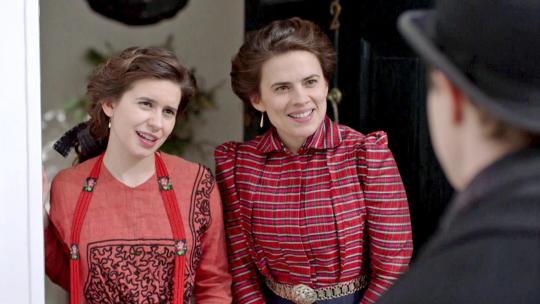
"HOWARDS END" (2017) Review
If there is one production company associated with the works of E.M. Forster it is Merchant-Ivory, the creation of producer Ishmail Merchant and director-producer James Ivory. I find this odd, considering that Merchant-Ivory have only adapted three of Forster's novels. One of those novels is "Howards End", published in 1910. There have been at least three on-screen adaptations of the latter - a 1970 BBC movie, Merchant-Ivory's 1992 Oscar winning film and the ITV's 2017 miniseries. This particular article happens to be about the latter.
"HOWARDS END" is basically an exploration of social and class divisions in Edwardian Great Britain, through the viewpoints of three families - the intellectual and idealistic Schlegels, the Wilcoxes; who are wealthy capitalists; and the working-class Basts. Sisters Margaret and Helen Schlegel become acquainted with the Wilcox family during a trip to Germany. When Helen, the younger Schlegel sister, visits the Wilcoxes at their country house, Howards End. She becomes attracted to the younger Wilcox son, Paul, and they become engaged in haste. However, the pair soon regret their decision and quickly break off their engagement. but soon regret their decision, breaking off the engagement by mutual consent. Months later, the two sisters and their younger brother Theobald "Tibby" Schlegel attend a musical concert, when Helen accidentally takes an umbrella that belongs to the impoverished clerk Leonard Bast. He appears at the Schlegels' home to retrieve it but leaves in a hurried after becoming embarrassed by his umbrella's shabby quality and appearance. Several months more pass before Leonard's common-law wife, Jacky, appear at their home, demanding his whereabouts. Apparently, Leonard had embarked upon a long walk into the countryside upon leaving work. He returns to the Schlegels' home to explain his disappearance and quickly forms a friendship with the two sisters.
Meanwhile, the Schlegels renew their acquaintance with the Wilcoxes when the latter move into a London townhouse, across the street from the latter, for oldest son Charles' wedding to a young woman named Dolly. With Helen visiting relatives in Germany, Margaret begins a friendship with Mrs. Ruth Wilcox. But their friendship is cut short by the latter's death. Sometime after Ruth Wilcox's funeral, the Schlegels become acquainted with the Wilcoxes again when Margaret and Helen encounter the recently widowed Henry Wilcox around the same time their friendship with Leonard Bast begins. Between Henry's bad employment advice regarding Leonard, Helen's developing dislike of Henry, and Margaret's growing attraction toward the businessman; a clash between social and political classes spiral toward a startling conclusion.
I had first learned about this third adaptation of Forster's novel through a blog that centered around period movie and television productions. The writer, a major fan of the 1992 adaptation, had quickly dismissed this production (without having seen it, I may add) as not worth viewing. Considering my past experience viewing the 2007 television adaptation of "A Room with a View", I had felt inclined to follow the blogger's advice. But in the end, I had decided it would have been fairer to give "HOWARDS END" a chance. I am more than glad I did.
Mind you, I had a few quibbles about "HOWARDS END". If I must be honest, I can only think of three quibbles right now. The miniseries featured a scene I believe should have involved a bit more of an emotional impact. This scene featured Margaret Schlegel's response to Henry Wilcox's decision to end their engagement, following the revelation of his past affair with Jacky Bast. I can see Margaret keeping her cool, while facing Henry's emotional decision. But even in the privacy of her room, Margaret had remained calm, almost cold, as he contemplated her next move. I do wish that director Hettie MacDonald and screenwriter Kenneth Lonergan had allowed a small peek into any emotional turmoil on Margaret's part. I also found her reaction to seeing Henry again, at his daughter Evie's wedding, a bit odd. She seemed a bit too . . . controlled, even after Helen had led her and Leonard away. Speaking of Jacky, I consider my third quibble to be a major narrative problem. And it is a problem shared by Forster's original novel and the 1992 film. What in the hell happened to Jacky Bast? Neither this miniseries, the novel or the movie bothered to reveal or hint Jacky Bast's fate, following that final event at the Howards End estate. It seemed clear that once poor Jacky had served her purpose in exposing Henry's past, Foster did not give her another thought. Screenwriter Ruth Prawer Jhabvala had decided to be faithful to the novel in her screenplay for the 1992 movie. I had hoped Lonergan would resolve this issue in miniseries' screenplay. Unfortunately, he had merely repeated Forster's mistake.
Despite my issues, I really enjoyed "HOWARDS END". Much more than I had fully expected. Thanks to Hettie MacDonald's direction and Kenneth Lonergan's screenplay, I thought the miniseries did an excellent job in exploring the different social classes and political beliefs that permeated the story. I do not know if I would label the Wilcoxes as part of "the upper classes". Before World War II, only members of the aristocracy and landed gentry were regarded as the upper classes. The Wilcoxes are obviously rich capitalists, whose fortune had originated in one or many of the British colonies overseas. Before the war, they would be regarded as "trade", regardless of their wealth. I sometimes found myself wondering if Henry Wilcox's attempt to find a family estate of his own was indicative of his desire for the family to be regarded a lot higher than mere rich capitalists. After all, his first wife Ruth, whose family had owned Howard End for generation, may have come from the landed gentry. Henry and his children did not seem interested in living at Howards End. Yet, they seemed determined that Ruth's desire to pass the estate to Margaret would be prevented. I find it strange that none of this had ever occurred to me, while watching Merchant-Ivory's film or reading Forster's novel.
Then again, I should not have been surprised. Watching this miniseries had made me aware of a lot of issues and emotions in the story - more so than the film and novel ever did. In at least two scenes, the miniseries seemed to have further exposed Henry's bullying and hypocritical nature. This was apparent in one scene in which he dismissed some of Helen's progressive views in a friendly, yet arrogant manner during her stay at Howards End in the first episode. Another scene featured Henry's refusal to consider that his advice regarding Leonard's employment had left the latter jobless. I found his reaction to Leonard's situation so arrogant and insensitive that I had to fight the urge to punch my fist through the television screen. I also noticed in some of the scenes featuring Ruth Wilcox that despite her gentle and soft-spoken nature, she seemed to exercise a strong grip on her family - including Henry. One very interesting scene in this miniseries featured Margaret and Helen's discussion about the Wilcoxes and the latter's negative comments on the wealthy family. Also, this version of Leonard Bast seemed not only more timid, but also more insecure.
What I found surprising about this adaptation is the less-than-ideal portrayal of the Schlegel sisters. Mind you, MacDonald and Lonergan's portrayal of "Tibby" Schlegel did not hesitate to expose the character's sharp wit, arrogance and self-absorbed nature. One brutal moment featured Tibby refusing to speak to Leonard, when the latter appeared at the Schlegels' current home to learn Helen's whereabouts. And as shown in the 1992 adaptation, the pair also exposed Helen's over-emotional reaction to the Wilcoxes and Margaret's relationship with Henry, along with Margaret's willingness to throw the Basts under the bus, when their very presence (I should say Jacky Bast's presence) proved to be a major inconvenience to her engagement. But I was surprised by MacDonald and Lonergan's willingness to expose Margaret's shallow fascination of Henry Wilcox's "manly" traits and his wealth - something I suspect that may have led her to consider him as a potential husband. Another moment that caught me by surprise was Helen's disregard for Jacky Bast and the dismissive comments she had made about the latter. She only seemed interested in Leonard, who somewhat shared her family's intellectual pursuits.
Just about every performance featured in "HOWARDS END" struck me as first-rate. I could not think of one misstep within the cast - at least as performances were concerned. Mind you, I thought casting Matthew MacFadyen and Julia Ormond as Henry and Ruth Wilcox was a bit problematic. Especially since Ormond is nearly a decade older than MacFadyen. But I cannot deny that both gave excellent performances. Ormond did a great job in portraying a soft-spoken and graceful woman who was not only in a state of physical decline, but also managed to exact a strong will over her family. I was really surprised by MacFadyen's portrayal of Henry Wilcox, but I thought he gave a fabulous performance as the domineering, yet short-sighted businessman who reeked of toxic masculinity. Although his appearance in the miniseries was brief, I thought Jonah Hauer-King gave a solid portrayal of the younger Wilcox son, Paul. Bessie Carter and Yolanda Kettle struck me as equally solid as Henry's only daughter, Evie Wilcox and Charles' bride and later wife, Dolly Wilcox. But I was very impressed by Joe Bannister's portrayal of elder son Charles Wilcox. I thought he did an excellent job of conveying the character's conservative and brutish nature without any taint of cartoonish acting.
Alex Lawther gave an excellent performance as the eccentric and self-absorbed Tibby Schlegel. Why do people assume that performers known for comedy would have such difficulty in dealing with dramatic roles? I never understood this attitude, considering comedy is known for being more difficult to perform. Tracy Ullman, who portrayed the Schlegels' Aunt Juley Mund had no difficulty in seamlessly utilizing both comedy and drama in her first-rate portrayal of the meddling, conventional, yet well-meaning woman. I thought Rosalind Eleazar gave an exceptional performance as Jacky Bast, a former prostitute who also happened to be Leonard's ill-fated woman. Eleazar managed to infuse a sense of desperation in Jacky, who struggled unsuccessfully to keep her and Leonard from falling into some kind of social and economic abyss.
It seemed good to see Hayley Atwell in a properly dramatic role, after spending years appearing in the Marvel Cinematic Universe films and television shows. I thought she gave a first-rate portrayal as Margaret Schlegel, the warm and strong-will sibling of the Schlegel family. Atwell did an excellent job of conveying Margaret's most admirable traits and at the same time, exposing the character's more questionable ones with great subtlety. I especially admire her performance in one scene in which she tried to force Henry to face his hypocritical refusal to forgive Helen's state as an unmarried mother, in comparison to his adulterous past with Jacky Bast. Joseph Quinn recently made a name for himself as an eccentric high school student during Season Four of the Netflix series, "STRANGER THINGS". But I was more than impressed by his portrayal of the intellectual wannabe, Leonard Bast, who found himself befriending the Schlegel sisters. Quinn did a great job in not only portraying Leonard's intelligence and longing for intellectual pursuits, but also his growing insecurities as he found his life being drawn even closer to the Schlegels and the Wilcoxes. But if I had to vote for the best performance in "HOWARDS END", I would select Australian actress, Philippa Coulthard. I thought she gave a superb performance as the younger Schlegel sister, Helen. I really admired how Coulthard conveyed Helen's emotional journey throughout the story; especially in scenes that featured Helen's scathing commentary on the Wilcox family, her growing hostility toward Margaret's romance with Henry Wilcox, her complicated relationship with Leonard and especially her anger at the Basts' destitute situation in the wake of Henry's poor employment advice.
One aspect of "HOWARDS END" that really took me by surprise was the excellent qualities of the miniseries' production values. Mind you, Sheena Napier's costume designs never attracted the same kind of acclaim that those from the 1992 movie. If I must be honest, I actually enjoyed her designs (as shown below):
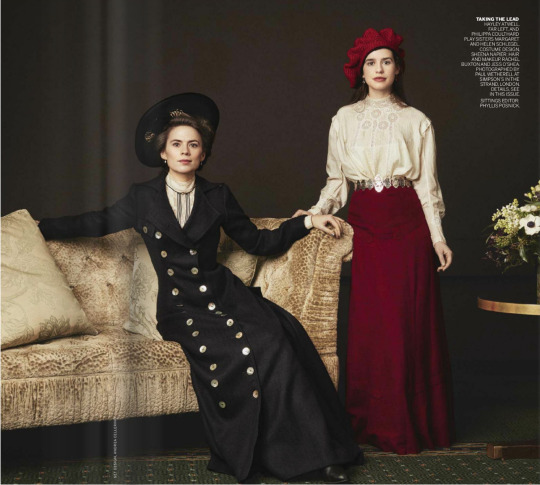
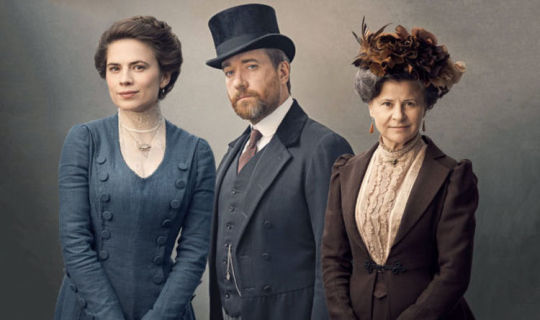
I found them quite colorful and beautiful without being too stylized or glamourous. Considering the characters viewers are dealing with, that seemed sufficient to me. I also enjoyed Wojciech Szepel's beautiful photography, especially in locations in London, Dorset and Buckinghamshire. But what really blew my mind were Luke Hull's production designs. I thought he did a superb job in re-creating Edwardian England, especially those scenes shot and set in London. While watching the miniseries, I felt as if someone had dropped me squarely back into London circa 1905-1906.
"HOWARDS END" managed to score a good number of award nominations, but I noticed that most of them came from lesser award organizations. It did win the BAFTA Award for Best Miniseries, but that was about it. No other nominations from BAFTA, no nominations from the Golden Globes or the Emmys. And all I can say is . . . "what the hell?" "HOWARDS END" proved to be one of the best television limited series I have seen in years. It became a critical darling from the media. Yet, it did not earn or win any major nominations, aside from the BAFTA Best Miniseries award? Were people so busy comparing it to the 1992 Merchant-Ivory film that they were blinded by its own merits? Hell, I believe it is just as good as the 90s film in its own way. I thought Hettie MacDonald, screenwriter Kenneth Lonergan had created an exceptionally first-rate miniseries that featured superb performances from a cast led by Hayley Atwell, Matthew MacFadyen and Philippa Coulthard. Perhaps one day, many other than the media, will appreciate it on its own merits.
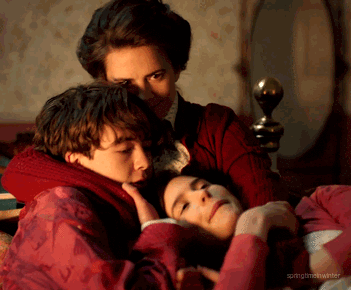
#e.m. forster#howards end#howards end 2017#hettie macdonald#kenneth lonergan#schlegel family#wilcox family#bast family#hayley atwell#matthew macfadyen#philippa coulthard#joseph quinn#tracey ullman#rosalind eleazar#alex lawther#joe bannister#bessie carter#jonah hauer king#julia ormond#bafta award#yolanda kettle#bbc costume drama#costume drama#period piece#period drama
16 notes
·
View notes
Note
Film Ask. Howards End
I have to apologize because I don’t have notifications turned on and I just discovered this ask today! So sorry, and thanks for the ask.
Note: Spoilers ahead
As to Howards End, I think it is excellent. Not one of the choices but I feel the film is better than great but not a masterpiece as a whole. While I do think it is a masterpiece in acting and style, personally, it’s not a film that I can watch over and over in its entirety because the characters actions frustrate me. Even though I know it will happen, I just can’t watch Margaret choose and continue to support Mr. Wilcox over and over. Especially in the face of all the evidence Helen keeps presenting to her about his character.
I do however love Helen and Mr. Bast’s story arc, with the exception of the ending of course, not least because I am a huge fan of both Helena Bonham Carter and Samuel West. A part of me would love to have Helen’s fiery spirit and her tenacity to stand by her convictions. And how can a person not relate to Mr. Bast as he toils away at his dull and thankless job, dreaming all the while not of a more prosperous life but a more intellectually fulfilled life. He doesn’t just dream but actually works toward it. All the while he sticks by Jackie simply because he gave his word.
The scene in the boat breaks my heart every time because you want these two characters to be together but you know they never can be. Both actors convey so many emotions with just their facial expressions.
Lastly, even though Leonard’s death is attributed to his weak heart, the image of him falling into the bookcase and him essentially being smothered by the weight of all this knowledge he desperately sought is poetically tragic and has always stuck with me.
Sorry for the long-winded answer.
3 notes
·
View notes
Text
i feel a leonard bast x wilcox reader is in order. one where y/n leaves Howard’s End to get away from her family goes to her friend Helen Schlegel’s house.
Eventually, she meets Leonard Bast and the two seemingly develop a close friendship for one another.
(Jacky doesn’t exist in this one but Leonard is still struggling)
They begin to develop feelings for one another. It plays out pretty much like it does in the show.
After going into a deep conversation, they end up sleeping with each other. I feel she would wake up to find the bedside empty.
when we get to the ending of the show tho. He doesn’t have an undiagnosed heart condition, and when that bookcase falls on him.
He’s alright just knocked unconscious. I just think that this story would be so sweet. Leonard lives.
when he asks her in his dazed state why she chose him she just responds with ‘because I love you.’
Story has happy ending Y:n and Leonard happily married with their son.
#fanfic#x reader#angst#headcanons#fluff#romance#howard’s end#Joe Quinn#leonard bast headcanon#leonard bast imagine#leonard bast fan fiction#leonard bast x y/n#leonard bast x you#leonard bast x reader
37 notes
·
View notes
Note
I figured you'd be swimming in asks about this but FINE I'LL DO IT MYSELF YOU GOOD-FOR-NOTHING-DORKS: might I please have a crumb of information about your Leonard fic? 🥺🖤
heheheh u can have SO MANY crumbs, as a treat <3
i call it the fix-it fic bc in it, leonard NEVER MEETS those goddamn sisters who start his downward spiral leading to his eventual death. leonard instead meets you, the reader, at the concert that happens in episode 1, he notices that you're about to walk home in the rain without so much as an umbrella and what sort of man would he be if he let that happen? so he walks you home and you get to talking about the concert and then about books n stuff and you're v apologetic for taking up leonard's time but he thanks you for being the most interesting person he's spoken to in weeks. he tells jacky he's late bc he made a friend at the concert who he walked home (no infidelity here, our len is a GOOD and HONEST MAN) and jacky's like "omg now you have someone to go with you to all those things you enjoy"
you're a teaching apprentice, tutoring an especially difficult child to educate to prove yourself as a class teacher someday. you live in the basement of [insert distant relative, i haven't decided yet] and tutor from there. you and len grow closer, both pining after each other but knowing that len gave up so much to be with jacky that he isn't gonna just toss that aside, even if it would make him happier.
at one point [something i haven't decided yet] happens that means len and jacky can't stay in their house. you ask your relative if you can offer them their spare room. upon meeting jacky you and your relative realise how unwell she is, so your relative gets a doctor out to see her, and the doctor also picks up on len's illnesses, and you spend your free time nursing them both. spending a few days with both basts p much 24hrs/day, it becomes increasingly obvious to jacky that len isn't actually happy with her.
and that's p much the whole entire story from start to end lol but there's other bits i'm excited to write about to expand on all their characters a lil bit more :)
3 notes
·
View notes
Note
I know nothing about Leonard Bast but want to read more of him 👀 so what do you wish happened for him?
spoilers for howard's end under the cut!!
obviously i wish he hadn't died lol. @ joseph start playing less tragic characters. i'm sad that he had such strife in his life, especially at the hands of the schlegels and wilcoxes (i'm still pissed at henry for the whole "advice" bullshit with the insurance company), and i'm especially sad that things seemed so rocky with jacky. len hardly had anything good in his life and that's so upsetting lol
6 notes
·
View notes
Text
Holidays 4.15
Holidays
Anime Day
Anniversary of Tarija (Bolivia)
AR-15 Day
Ariadne Asteroid Day
ASL Day (American Sign Language Day)
Banyan Tree Day (Lahaina, Maui, Hawaii)
Bija Mangala (Field Cultivation Festival)
Buck Rogers Day
Children’s Day (Spain)
Criminal Investigation Department Employees Day (Ukraine)
Da Vinci Day
Day of Love (Georgia)
Day of People (Aysellant)
Day of Radio-Electronic Fight Troops (Russia)
Day of the Sun (North Korea)
Father Damien Day (Hawaii)
Fluff Appreciation Day
415 Day
Freak Out Day
Gallaudet Day
Good Roads Day (Illinois)
Great Stichwort
Hardware Freedom Day
Hillsborough Disaster Memorial Day (Liverpool, UK)
Himachal Day (India)
Historical City Day (Malacca)
Hug Your Boiler Day
Income Tax Pay Day
International Biomedical Laboratory Science Day
International Pompe Day
Ivory Soap Day
Jackie Robinson Day
Kim Il Sung Day (North Korea)
Lilac Day (French Republic)
Lover’s Day (Kazakhstan)
Mariah Carey Day (California)
Melaka UNESCO Heritage Day (Malaysia)
Microvolunteering Day
National Anime Day
National ASL Day
National Collegiate Recovery Day
National Griper’s Day
National Hookup Day
National Keaton Day
National Laundry Day
National Poet Day (Peru)
National Rubber Eraser Day
National Security Education Day (Hong Kong)
National That Sucks Day
National Titanic Remembrance Day
One Boston Day
Purple Up Day
Quantum Teleportation Day
Rubber Eraser Day
Swallow Day (UK)
Take a Wild Guess Day
Tax Day (US)
Tax Resistor's Day
That Sucks Day
Tipsa Diena (Traditional start of plowing; Ancient Latvia)
Titanic Remembrance Day
Type 1 Diabetes Day
Universal Day of Culture
World Art Day
World Tiny Art Gallery Day
Food & Drink Celebrations
Fast Food Day
McDonald’s Day
National Glazed Spiral Ham Day
National Takeout Day (Canada)
3rd Monday in April
Boston Marathon Day [3rd Monday]
National Stress Awareness Day [3rd Monday]
Landing of the 33 Patriots Day observed (Uruguay) [3rd Monday]
Patriots' Day (Maine, Massachusetts, Wisconsin) [3rd Monday]
Sechseläuten ends (Six Ringing Festival; Zurich, Switzerland) [3rd Monday]
Weekly Holidays beginning April 15 (3rd Week)
National Work Zone Safety Awareness Week [thru 4.19]
Undergraduate Research Week [thru 4.19]
Week of the Young Child [thru 4.19]
Independence & Related Days
Independence Day Holiday (Israel)
Unitedlands (Declared; 2022) [unrecognized]
Vishwamitra (f.k.a. Children’s Group; Declared; 2007) [unrecognized]
New Year’s Days
Day after Sidereal New Year (South and Southeast Asian) (a.k.a. …
Bengali New Year (India)
Bohag Bihu (Parts of India)
Himachl Day (Parts of India)
Lao New Yar (Laos)
Masadi (Parts of India)
Nababarsha (Parts of India)
New Year Holidays (Myanmar)
Sarhul (Parts of India)
Songkran (Thailand)
Water-Sprinkling Festival continues (Yunnan, China)
Poila Boishakh (Bengali New Year)
Festivals Beginning April 15, 2024
Boston Marathon (Boston, Massachusetts) [3rd Monday]
Coquina Beach Seafood & Music Festival (Coquina Beach, Florida) [thru 4.17]
Singing in the Sun (Myrtle Beach, South Carolina) [thru 4.20]
TED Conference (Vancouver, British Columbia, Canada) [thru 4.19]
Feast Days
Abbo II of Metz (Christian; Saint)
Arshile Gorky (Artology)
Bananas with Everything Day (a.k.a. Banana Day; Pastafarian)
Basilissa and Anastasia (Christian; Martyrs)
Day of Tellus Mater (Pagan)
Elizabeth Catlett Mora (Artology)
Father Damien (The Episcopal Church)
Festival of Hero/Bast (Ancient Egypt)
Festival of Matsu/Mazu (Goddess of the Sea; Taoism)
Fordicidia (Old Roman Festival of Fertility to honor Ceres)
Henry James (Writerism)
Hippachus (Positivist; Saint)
Hunna (Christian; Saint)
Jeffrey Archer (Writerism)
Kanamara Matsuri (Iron Phallus Festival; Japan)
Leonardo da Vinci (Artology)
Munde (Christian; Saint)
Padarn (Christian; Saint)
Pammy (Muppetism)
Paternus of Avranches (Christian; Saint)
Peter Gonzales (Christian; Saint)
Ruadan of Lothra (Christian; Saint)
Rusalja (Celebration of River Spirts Rusalki of the Lemko People of Carpathia; Starza Pagan Book of Days)
Tellus Mater (Old Roman Mother Earth Festival)
Vlad Tepes Day (Church of the SubGenius; Saint)
Lucky & Unlucky Days
Fortunate Day (Pagan) [14 of 53]
Sakimake (先負 Japan) [Bad luck in the morning, good luck in the afternoon.]
Uncyclopedia Bad to Be Born Today (because the Titanic Sank and it’s also Tax Day.)
Premieres
The Adventures off Marco Polo (Film; 1938)
Aftermath, by The Rolling Stones (Album; 1966)
The Art of Real Happiness, by Norman Vincent Peale (Book; 1950)
The Black Island, by Hergé (Graphic Novel; 1938) [Tintin #7]
Catalogue d’Oiseaux, by Olivier Messiaen (Pieno Pieces; 1959)
Colors (Film; 1988)
Dark Command (Film; 1940)
Donald’s Nephews (Disney Cartoon; 1938)
Don’t Speak, by No Doubt (Song; 1996)
84, Charing Cross Road, by Helene Hanff (Novel; 1970)
El Amor Bruno (Love, the Magician), by Manuel de Falla (Ballet; 1915)
Fantastic Beasts: The Secrets of Dumbledore (Film; 2022)
Fargo (TV Series; 2014)
The Fitzgeralds and The Kennedys, by Doris Kearns Goodwin (Book; 1987)
Flashdance (Film; 1983)
Flowers for Algernon, by Daniel Keyes (Short Story; 1959)
Genghis Khan (Film; 1965)
Girls (TV Series; 2012)
The Hypo-Chondri-Cat (WB MM Cartoon; 1950)
The Little Goldfish (MGM Cartoon; 1939)
Little Red School Mouse (Noveltoons; 1949)
In Living Color (TV Series; 1990)
The Last Emperor (Film; 1988)
The Lumberjack (Oswald the Lucky Rabbit; 1929)
The Moon and Sixpence, by W. Somerset Maugham (Novel; 1919)
Mouse Come Home (Andy Panda Cartoon; 1946)
Outer Banks (TV Series; 2020)
Outer Range (TV Series; 2022)
Rattus Norvegicus, by The Stranglers (Album; 1977)
Ride ‘Em Plowboy (Oswald the Luck Rabbit Disney Cartoon; 1928)
Rio (Animated Film; 2011)
Robinson Crusoe’s Broadcast (Terrytoons Cartoon; 1938)
Rock & Rule (Animated Film; 1983)
Rock for Light, by The Bad Brains (Album; 1983)
Stage Fright (Film; 1950)
St. Matthew’s Passion, by Johann Sebastian Bach (Oratorio; 1729)
Think, recorded by Aretha Franklin (Song; 1968)
To the Finland Station, by Edmund Wilson (Novel; 1940)
The Twenty-One Balloons, by William Pène du Bois (Novel; 1947)
Whole Lotta Shakin’ Goin’ On, by Jerry Lee Lewis (Song; 1957)
Wild, by Cheryl Strayed (Memoir; 2012)
Today’s Name Days
Anastasia, Damian, Una (Austria)
Rastislav, Teodor (Croatia)
Anastázie (Czech Republic)
Olympia (Denmark)
Uljas, Uljo, Verner, Verni (Estonia)
Linda, Tuomi (Finland)
César, Paterne (France)
Anastasia, Damian, Una (Germany)
Leonidas (Greece)
Anasztázia, Tas (Hungary)
Anastasio, Annibale (Italy)
Aelita, Agita, Balvis, Gastons (Latvia)
Anastazijus, Liudvina, Modestas, Vaidotė, Vilnius (Lithuania)
Oda, Odd, Odin (Norway)
Anastazja, Bazyli, Leonid, Ludwina, Modest, Olimpia, Tytus, Wacław, Wacława, Wiktoryn, Wszegniew (Poland)
Aristarh, Pud, Trofim (Romania)
Fedor (Slovakia)
Telmo (Spain)
Oliver, Olivia (Sweden)
Mstyslav, Mstyslava (Ukraine)
Kenya, Octavia, Tavia, Tucker (USA)
Today is Also…
Day of Year: Day 106 of 2024; 260 days remaining in the year
ISO: Day 1 of week 16 of 2024
Celtic Tree Calendar: Saille (Willow) [Day 2 of 28]
Chinese: Month 3 (Wu-Chen), Day 7 (Ji-You)
Chinese Year of the: Dragon 4722 (until January 29, 2025) [Wu-Chen]
Hebrew: 7 Nisan 5784
Islamic: 66 Shawwal 1445
J Cal: 16 Cyan; Twosday [16 of 30]
Julian: 2 April 2024
Moon: 50%: 1st Quarter
Positivist: 22 Archimedes (4th Month) [Varro]
Runic Half Month: Man (Human Being) [Day 6 of 15]
Season: Spring (Day 28 of 92)
Week: 3rd Week of April
Zodiac: Aries (Day 26 of 31)
0 notes
Text
Holidays 4.15
Holidays
Anime Day
Anniversary of Tarija (Bolivia)
AR-15 Day
Ariadne Asteroid Day
ASL Day (American Sign Language Day)
Banyan Tree Day (Lahaina, Maui, Hawaii)
Bija Mangala (Field Cultivation Festival)
Buck Rogers Day
Children’s Day (Spain)
Criminal Investigation Department Employees Day (Ukraine)
Da Vinci Day
Day of Love (Georgia)
Day of People (Aysellant)
Day of Radio-Electronic Fight Troops (Russia)
Day of the Sun (North Korea)
Father Damien Day (Hawaii)
Fluff Appreciation Day
415 Day
Freak Out Day
Gallaudet Day
Good Roads Day (Illinois)
Great Stichwort
Hardware Freedom Day
Hillsborough Disaster Memorial Day (Liverpool, UK)
Himachal Day (India)
Historical City Day (Malacca)
Hug Your Boiler Day
Income Tax Pay Day
International Biomedical Laboratory Science Day
International Pompe Day
Ivory Soap Day
Jackie Robinson Day
Kim Il Sung Day (North Korea)
Lilac Day (French Republic)
Lover’s Day (Kazakhstan)
Mariah Carey Day (California)
Melaka UNESCO Heritage Day (Malaysia)
Microvolunteering Day
National Anime Day
National ASL Day
National Collegiate Recovery Day
National Griper’s Day
National Hookup Day
National Keaton Day
National Laundry Day
National Poet Day (Peru)
National Rubber Eraser Day
National Security Education Day (Hong Kong)
National That Sucks Day
National Titanic Remembrance Day
One Boston Day
Purple Up Day
Quantum Teleportation Day
Rubber Eraser Day
Swallow Day (UK)
Take a Wild Guess Day
Tax Day (US)
Tax Resistor's Day
That Sucks Day
Tipsa Diena (Traditional start of plowing; Ancient Latvia)
Titanic Remembrance Day
Type 1 Diabetes Day
Universal Day of Culture
World Art Day
World Tiny Art Gallery Day
Food & Drink Celebrations
Fast Food Day
McDonald’s Day
National Glazed Spiral Ham Day
National Takeout Day (Canada)
3rd Monday in April
Boston Marathon Day [3rd Monday]
National Stress Awareness Day [3rd Monday]
Landing of the 33 Patriots Day observed (Uruguay) [3rd Monday]
Patriots' Day (Maine, Massachusetts, Wisconsin) [3rd Monday]
Sechseläuten ends (Six Ringing Festival; Zurich, Switzerland) [3rd Monday]
Weekly Holidays beginning April 15 (3rd Week)
National Work Zone Safety Awareness Week [thru 4.19]
Undergraduate Research Week [thru 4.19]
Week of the Young Child [thru 4.19]
Independence & Related Days
Independence Day Holiday (Israel)
Unitedlands (Declared; 2022) [unrecognized]
Vishwamitra (f.k.a. Children’s Group; Declared; 2007) [unrecognized]
New Year’s Days
Day after Sidereal New Year (South and Southeast Asian) (a.k.a. …
Bengali New Year (India)
Bohag Bihu (Parts of India)
Himachl Day (Parts of India)
Lao New Yar (Laos)
Masadi (Parts of India)
Nababarsha (Parts of India)
New Year Holidays (Myanmar)
Sarhul (Parts of India)
Songkran (Thailand)
Water-Sprinkling Festival continues (Yunnan, China)
Poila Boishakh (Bengali New Year)
Festivals Beginning April 15, 2024
Boston Marathon (Boston, Massachusetts) [3rd Monday]
Coquina Beach Seafood & Music Festival (Coquina Beach, Florida) [thru 4.17]
Singing in the Sun (Myrtle Beach, South Carolina) [thru 4.20]
TED Conference (Vancouver, British Columbia, Canada) [thru 4.19]
Feast Days
Abbo II of Metz (Christian; Saint)
Arshile Gorky (Artology)
Bananas with Everything Day (a.k.a. Banana Day; Pastafarian)
Basilissa and Anastasia (Christian; Martyrs)
Day of Tellus Mater (Pagan)
Elizabeth Catlett Mora (Artology)
Father Damien (The Episcopal Church)
Festival of Hero/Bast (Ancient Egypt)
Festival of Matsu/Mazu (Goddess of the Sea; Taoism)
Fordicidia (Old Roman Festival of Fertility to honor Ceres)
Henry James (Writerism)
Hippachus (Positivist; Saint)
Hunna (Christian; Saint)
Jeffrey Archer (Writerism)
Kanamara Matsuri (Iron Phallus Festival; Japan)
Leonardo da Vinci (Artology)
Munde (Christian; Saint)
Padarn (Christian; Saint)
Pammy (Muppetism)
Paternus of Avranches (Christian; Saint)
Peter Gonzales (Christian; Saint)
Ruadan of Lothra (Christian; Saint)
Rusalja (Celebration of River Spirts Rusalki of the Lemko People of Carpathia; Starza Pagan Book of Days)
Tellus Mater (Old Roman Mother Earth Festival)
Vlad Tepes Day (Church of the SubGenius; Saint)
Lucky & Unlucky Days
Fortunate Day (Pagan) [14 of 53]
Sakimake (先負 Japan) [Bad luck in the morning, good luck in the afternoon.]
Uncyclopedia Bad to Be Born Today (because the Titanic Sank and it’s also Tax Day.)
Premieres
The Adventures off Marco Polo (Film; 1938)
Aftermath, by The Rolling Stones (Album; 1966)
The Art of Real Happiness, by Norman Vincent Peale (Book; 1950)
The Black Island, by Hergé (Graphic Novel; 1938) [Tintin #7]
Catalogue d’Oiseaux, by Olivier Messiaen (Pieno Pieces; 1959)
Colors (Film; 1988)
Dark Command (Film; 1940)
Donald’s Nephews (Disney Cartoon; 1938)
Don’t Speak, by No Doubt (Song; 1996)
84, Charing Cross Road, by Helene Hanff (Novel; 1970)
El Amor Bruno (Love, the Magician), by Manuel de Falla (Ballet; 1915)
Fantastic Beasts: The Secrets of Dumbledore (Film; 2022)
Fargo (TV Series; 2014)
The Fitzgeralds and The Kennedys, by Doris Kearns Goodwin (Book; 1987)
Flashdance (Film; 1983)
Flowers for Algernon, by Daniel Keyes (Short Story; 1959)
Genghis Khan (Film; 1965)
Girls (TV Series; 2012)
The Hypo-Chondri-Cat (WB MM Cartoon; 1950)
The Little Goldfish (MGM Cartoon; 1939)
Little Red School Mouse (Noveltoons; 1949)
In Living Color (TV Series; 1990)
The Last Emperor (Film; 1988)
The Lumberjack (Oswald the Lucky Rabbit; 1929)
The Moon and Sixpence, by W. Somerset Maugham (Novel; 1919)
Mouse Come Home (Andy Panda Cartoon; 1946)
Outer Banks (TV Series; 2020)
Outer Range (TV Series; 2022)
Rattus Norvegicus, by The Stranglers (Album; 1977)
Ride ‘Em Plowboy (Oswald the Luck Rabbit Disney Cartoon; 1928)
Rio (Animated Film; 2011)
Robinson Crusoe’s Broadcast (Terrytoons Cartoon; 1938)
Rock & Rule (Animated Film; 1983)
Rock for Light, by The Bad Brains (Album; 1983)
Stage Fright (Film; 1950)
St. Matthew’s Passion, by Johann Sebastian Bach (Oratorio; 1729)
Think, recorded by Aretha Franklin (Song; 1968)
To the Finland Station, by Edmund Wilson (Novel; 1940)
The Twenty-One Balloons, by William Pène du Bois (Novel; 1947)
Whole Lotta Shakin’ Goin’ On, by Jerry Lee Lewis (Song; 1957)
Wild, by Cheryl Strayed (Memoir; 2012)
Today’s Name Days
Anastasia, Damian, Una (Austria)
Rastislav, Teodor (Croatia)
Anastázie (Czech Republic)
Olympia (Denmark)
Uljas, Uljo, Verner, Verni (Estonia)
Linda, Tuomi (Finland)
César, Paterne (France)
Anastasia, Damian, Una (Germany)
Leonidas (Greece)
Anasztázia, Tas (Hungary)
Anastasio, Annibale (Italy)
Aelita, Agita, Balvis, Gastons (Latvia)
Anastazijus, Liudvina, Modestas, Vaidotė, Vilnius (Lithuania)
Oda, Odd, Odin (Norway)
Anastazja, Bazyli, Leonid, Ludwina, Modest, Olimpia, Tytus, Wacław, Wacława, Wiktoryn, Wszegniew (Poland)
Aristarh, Pud, Trofim (Romania)
Fedor (Slovakia)
Telmo (Spain)
Oliver, Olivia (Sweden)
Mstyslav, Mstyslava (Ukraine)
Kenya, Octavia, Tavia, Tucker (USA)
Today is Also…
Day of Year: Day 106 of 2024; 260 days remaining in the year
ISO: Day 1 of week 16 of 2024
Celtic Tree Calendar: Saille (Willow) [Day 2 of 28]
Chinese: Month 3 (Wu-Chen), Day 7 (Ji-You)
Chinese Year of the: Dragon 4722 (until January 29, 2025) [Wu-Chen]
Hebrew: 7 Nisan 5784
Islamic: 66 Shawwal 1445
J Cal: 16 Cyan; Twosday [16 of 30]
Julian: 2 April 2024
Moon: 50%: 1st Quarter
Positivist: 22 Archimedes (4th Month) [Varro]
Runic Half Month: Man (Human Being) [Day 6 of 15]
Season: Spring (Day 28 of 92)
Week: 3rd Week of April
Zodiac: Aries (Day 26 of 31)
1 note
·
View note
Text
eelp thee blockages and slick defac'dream drimmel he beating her ass healthu what is Daytoma' gosh glosh sloshibmmow'smirk "FEEDER' YKWSYAFTERYEAR eyes
i used to slow my heart, i can smell her
te
early
rome 📚 ibcry i was in love my eyes hurt
government didnt think somebody would love and i try to hug Lisa even when she looked at me in revenge. I'M a Coward and I'll pay for being Achilles watching Pactrolus... TJ Menelaus As Myrmidon
Sonja His Heart Be Stopping
Shameka Mama "Let Him Go" He A Girl And Lisa Would Tell You , Reba dies in his sleep _ every night "Boyfriends Back stomach nosebleed why you yes² she wore a coat and her sister dermatology'hell bast "stop" top head to chin means he doesnt understand Maurice died too much he touches with his head to say " I dont understand but im trying_ like a predator being nice Swear
- FRANCOIS HE WOULD HAVE HAD TO "FEMALE TO ASPIRING FTM SPEECH" JACKIE WAS ALSO AN ADMIRE TO JAKO TOO_ POISON AND RAPE "GREEKS TRAGI"
0 notes